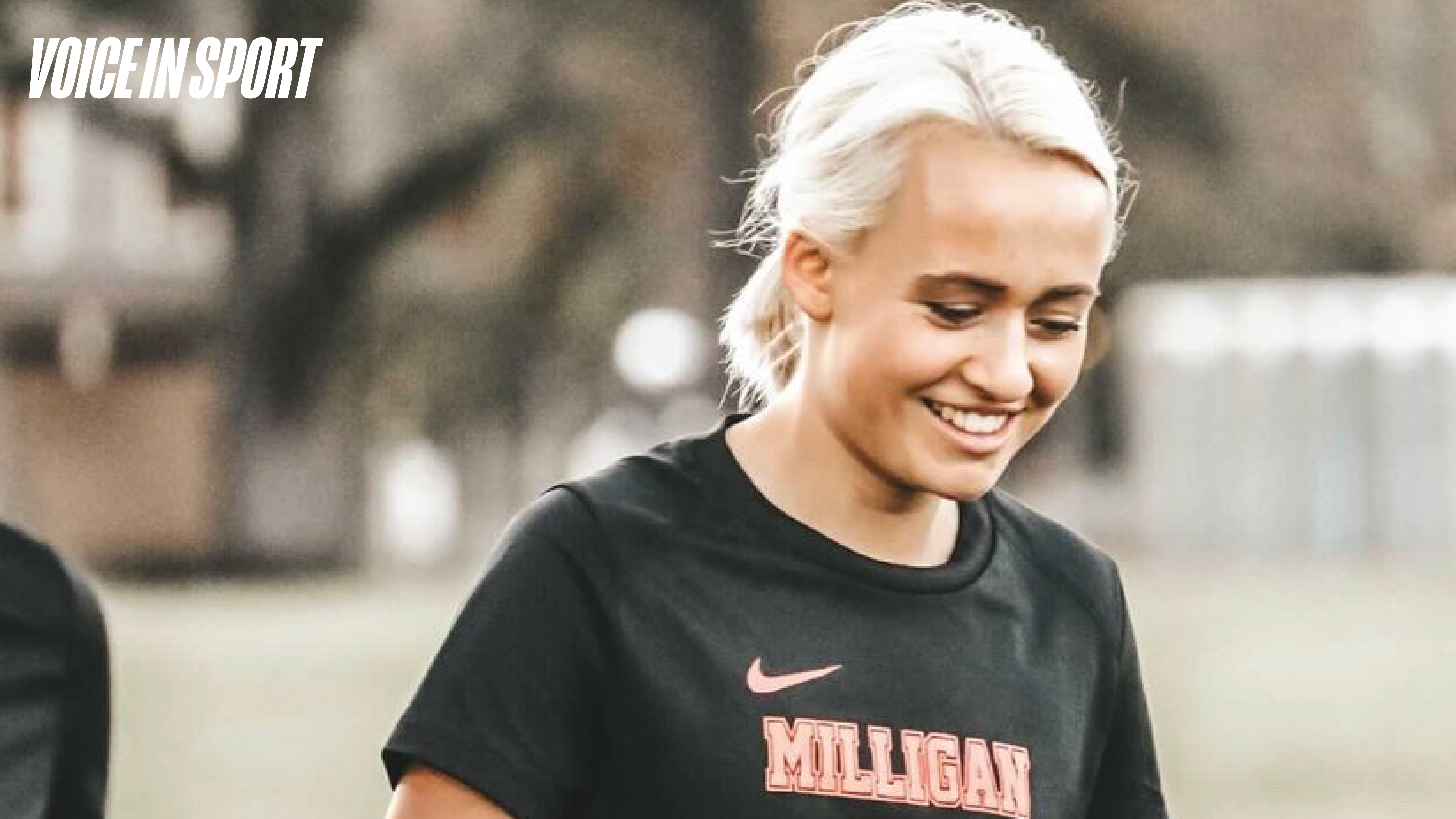Arriving on campus, Ferguson was beyond excited. Like most college freshmen arriving at college for the first time, she envisioned the good times to be had. But for athletes, there is also the ambition to win championships. Ferguson recalls, “I was so excited to have a fresh start and make new friends and have the support I needed to chase after my dreams.”
Those dreams, however, faded. Upon entering her second semester of her freshman year at Milligan, Ferguson went to visit a mutual friend from a neighboring university. He picked her up, and they talked as they drove to his apartment where he assured her more people would be waiting for them. When Ferguson arrived she realized no one else was there, she recalled, “I had a deep feeling that something was wrong.”
By then it was too late. Ferguson was alone in an apartment with a man who, from that night on, would be known as her rapist. Ferguson stated, “I didn’t know it at the time, but he had been drinking and got really aggressive really fast”. She recalls him leaving her alone in his apartment immediately after the attack ended. He had another party to get to. Attempting to repress these memories, Ferguson tried her best to carry on and she dove even further into her training.
The following weekend, she recorded a personal best in the 5K. With talks of professional running and praise from her coach, Ferguson decided training hard and winning were the best ways to heal from her attack. Soon after this, however, she came to know that living under this guise of normalcy would only compound on itself.
Distancing herself from her team out of shame and fear she struggled to keep up with schoolwork. Ferguson’s trauma began to resurface. After a flashback of the attack, she had to sit for several races to regroup. She became completely isolated from her team and she withdrew further into herself. She recalled, “I don’t know how to describe disassociation to someone who has never experienced it. I was not in my body; I wasn’t there.”
With each day, Ferguson’s depression grew worse, and her anxiety became too much to bear. As suicidal thoughts crept in, those closest to her began to notice her recent changes in behavior. Ferguson’s roommate was the first one to step in and check on her friend. “One day she locked me in our room and said she wouldn’t let me out until I told her what was wrong. She saved my life.”
After the grueling task of sharing her attack with another person, Ferguson realized that in order to survive she could no longer stay silent. She had to take action. It would start with doing the first thing children are all taught to do if something bad happens. Find a trusted adult, talk to them, and they'll protect us. However, in Ferguson’s case, her “trusted” adult would be the man who would put her through even more pain than she’d already experienced. Here’s how Chris Layne and Milligan University failed Amy Ferguson.
Ferguon’s bravery was met with dismissal and dehumanization from her university coach. She recalls her coach’s statement, “Boys will be boys. You need to get over it and start running faster and accept your part of the blame.” Unbelievably, “He told me that, ‘I had my fun in college too.” Layne showed his flippancy for her attack and at the same time drew comparisons to his days of college partying. Ferguson became terrified. In her words, she felt she was “living a nightmare”.
Following this ordeal, Ferguson’s physical health began to decline. And with it, her credibility and reputation came under attack from her head coach. She developed serious stress fractures in her feet and legs, she lost her period, which is almost certainly a result of overtraining and underfueling. Even kidney stones had developed in this young, healthy athlete. All amidst an uptick in emotional stress and anxiety as a result of the conditions created by her coach.
After the results from the orthopedic specialist confirmed her fears of overuse injuries, she confided in more women about her experience under Chris Layne. She was met with more support than she had hoped for from these women. She recalls, “. . . they had seen issues with the women’s cross country team for years. They had filed complaints, but nothing had ever happened. When I told them I wanted to report him, they completely had my back.” With this new found confidence fueling her forward, Ferguson went to the university’s Title IX coordinator with a teammate and professor to file an official complaint. The Title IX representative listened intently, showed empathy and even genuine concern for accounts of Chris Layne’s coaching approach. But Ferguson quickly learned just how far her head coach’s reach went in this institution.
Taking on a powerful man in the buckle of the Bible belt is a task many women shy away from. Male authority figures can feel that they are untouchable when it comes to university policy, and, unfortunately for Ferguson, this was confirmed.
Referring to Milligan’s southern roots, she says, “Every stereotype you have about this kind of environment is correct. Women aren’t in places of leadership, no one questions or opposes a powerful man,” But in many ways, Ferguson’s passion for justice, despite the inherited protection surrounding Layne, grew with every dismissal. She continues, “This space is not made for us, and I know from experience that sexual violence is treated as something that comes with the territory of being in a man’s world.”
When asked what Ferguson feels the appropriate response from the NAIA to be, she first states that most United States’ universities are ill-equipped to stand up for the victims; rather these institutions protect powerful staff members that hold weight at the university. That’s why she’d like to see a more radical change to this abusive system.
Ideally, “There has to be a third party completely unaffiliated with the university, the abuser, and the sport to listen to victims and conduct investigations.” She feels that the current system does not allow the victims a voice. Ultimately, the reform should focus on preventing abuse and protecting the victims who come forward. She notes, “What I want people to take away from my story is how different my life would have been if I just would have been believed. If I just would have been listened to.”
Ferguson’s story is far from over. In fact, it’s only now being told. If Ferguson’s story can encourage more young women to stand up for themselves when faced with crippling fear and doubt, she hopes her choice to come forward will inspire. In her own words, “You are worthy of fierce love and protection, and you’re allowed to leave every space that doesn’t give you that.”
We at VIS™ are proud to tell Amy Ferguson’s story. A story that far too many women know all too well. Let’s stand with her as we continue the fight to topple this system that has hurt so many. It starts with a voice.





